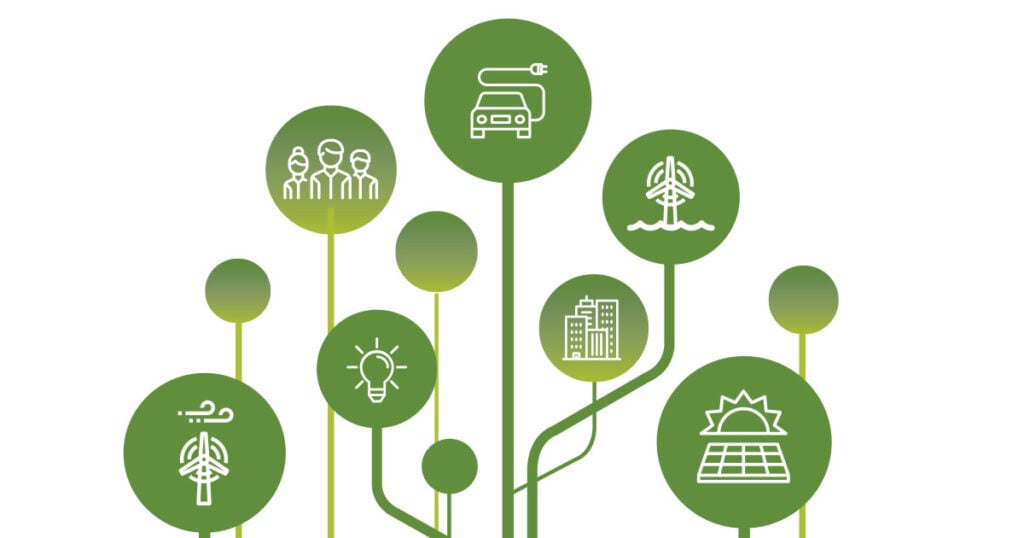ScottishPower Energy Network (SPEN) has released its official Sustainable Business Strategy which lays out the company’s climate goals up to 2040.
The Scottish network provider’s report details several different phases before reaching net zero. The first key milestone is achieving 100% reused or recycled waste, 100% decarbonised cars and vans and 80% reduction in business carbon footprint by 2030.
The company then aims to accomplish net zero greenhouse gas emissions by 2035 before becoming a zero-waste business by 2040.
The goal for this year (2024) is simply to establish the firm’s circular economy targets, which it plans to achieve by focusing on the use of renewable instead of virgin materials in production and maximising the lifespan of materials and resources when in use.
In regards to SPEN’s greenhouse gas emissions targets, the company has a three-scope approach. Scope 1 involved tackling direct emissions from fuel use and leakage of gases used in its electrical equipment.
Scope 2 is aimed at indirect emissions from electricity used in its buildings and electricity lost as it is transported from generation to consumer and Scope 3 targets indirect emissions that occur in its value chain, employee commuting and waste disposal.
SPEN’s green past
ScottishPower has not only been developing its own sustainability strategy over the past few years, it has also been encouraging other businesses to do the same. This includes the unveiling of £5.4 billion worth of contract opportunities earlier this year (January).
As part of the next phase in the company’s electric network investment, the funding aims to support the energy transition by unlocking both green energy infrastructure development opportunities as well as green jobs.
In October 2023, ScottishPower also released a guide on revenue opportunities in the green space, using electric vehicle (EV) chargepoints as an example of additional revenue generation for small to medium businesses (SMEs).
The guide said that qualifying businesses can host a ScottishPower chargepoint, which would incur no upfront cost for the SME, and instead provide a share of revenue generated through public use of their chargepoints.






